Cowardice asks the question, is it safe? Expediency ask the question, is it politic? Vanity asks the question, is it popular? But conscience ask the question, is it right? And there comes a time when we must take a position that is neither safe, nor politic, nor popular, but one must take it because it is right.
The leaders we respect the most are those who stood for something and were able to stand for their convictions even though the general consensus was against them. They were willing to die for what they stood for and they ultimately paid for their courage to stand for their conviction sometimes with their life. Nelson Mandela was imprisoned for 27 years for his values, Muhammed Alli refused to be drafted into the military owing to his religious beliefs and ethical opposition to the Vietnam War in turn not fighting for four years and not performing at the height of his career, Rosa Park’s civil disobedience to resist bus segregation sparked the Montgomery bus boycott, President Abraham Lincoln preserved the American union through the civil war and abolished slavery, and Martin Luther King Jnr. had a dream but ultimately paid with his life.
“To be nobody but yourself in a world which is doing its best day and night to make you like everybody else means to fight the hardest battle which any human being can fight and never stop fighting.” ― E.E. Cummings
American Baptist minister and civil rights movement activist, Martin Luther King Jnr. was assassinated for his beliefs and conviction to follow through on his dream of having a just and egalitarian society. His “I Have a Dream speech” delivered during the 1963 March on Washington for Jobs and Freedom, is considered one of the most iconic speeches in American history. Martin Luther King Jnr had this to say about courage, he asserted:
Courage is an inner resolution to go forward despite obstacles; Cowardice is submissive surrender to circumstances. Courage breeds creativity; Cowardice represses fear and is mastered by it. Cowardice asks the question, is it safe? Expediency ask the question, is it politic? Vanity asks the question, is it popular? But conscience ask the question, is it right? And there comes a time when we must take a position that is neither safe, nor politic, nor popular, but one must take it because it is right.
As Martin Luther Jnr. said, “There comes a time when we must take a position that is neither safe, nor politic, nor popular, but one must take it because it is right.” Courage is not the absence of fear but the ability to act in spite of fear, the ability to speak when your voice is shaking, and the ability to stand for your conviction even though you are going to be ostracized by your family, friends, and society. It takes guts and courage to stand for what you believe in, especially when it is not a popular choice. Leadership is not a popularity contest, it is about doing what is right even though you are going to be disliked, criticized, ostracized, pressured, and even vilified by almost everyone around you.
Courage isn’t having the strength to go on – it is going on when you don’t have strength.― Napoleon Bonaparte
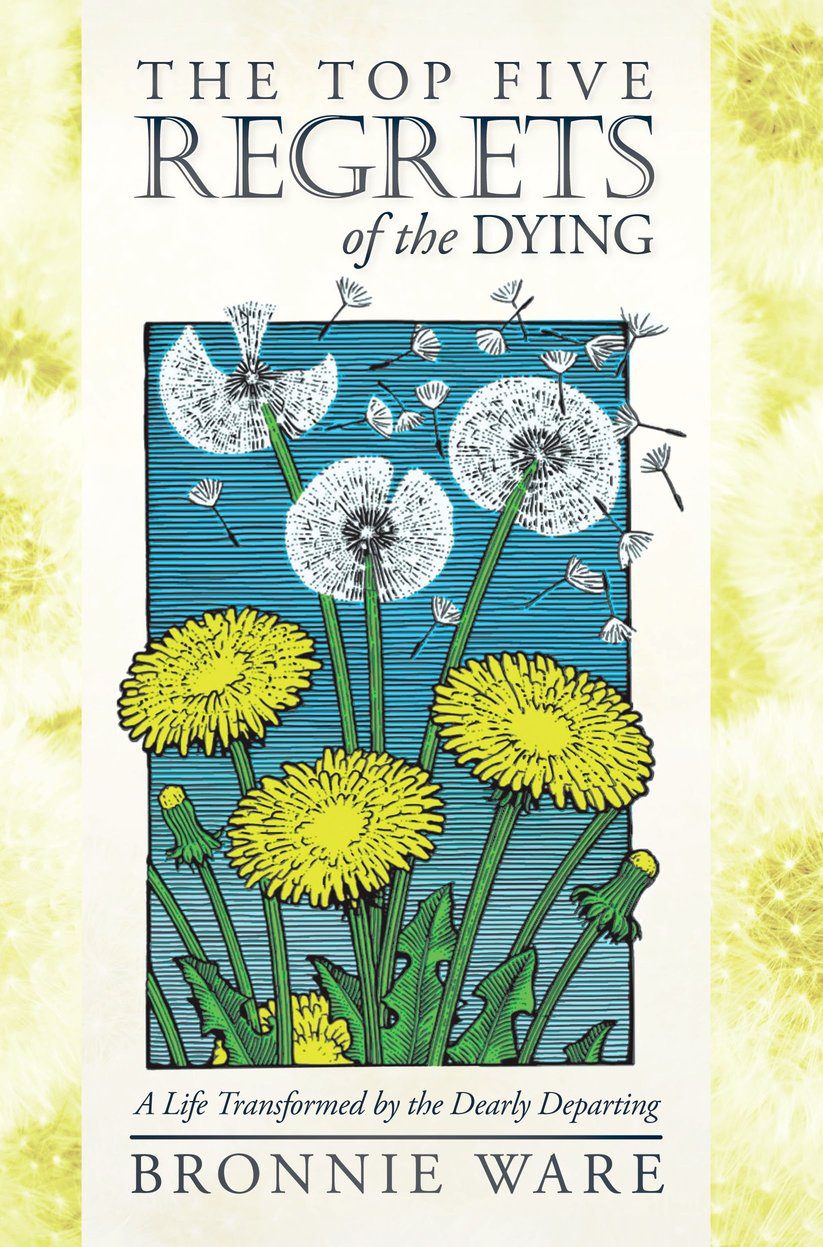
Australian palliative caregiver Bronnie Ware, documented the top regrets of her dying patients, their insights on living, lessons learned, and epiphanies. The insights she learned from her dying patients led her to start a blog and eventually write the book:: The Top Five Regrets of the Dying: A Life Transformed by the Dearly Departing 1. The number one regret of her dying patient according to Bronnie Ware was “I wish I’d had the courage to live a life true to myself, not the life others expected of me.“
The regret of not having lived a life true to themselves was the most common one of all. It was also the one that caused the most frustration, as the client’s realization came too late. They say though that we do more to avoid pain than we do to gain pleasure. So it is when the pain becomes too much that we finally find the courage to make changes. Until then, the pain within me was just continuing to fester until it did reach a breaking point. We are all fairly malleable, bendable creatures really. While we have the choice to think for ourselves and have free will to live the way our hearts guide us, our environment has a huge effect on us all, particularly until we start choosing life from a more conscious perspective.
Life is over so quickly. It is possible to reach the end with no regrets. It takes some bravery to live it right, to honour the life you are here to live but the choice is yours. So will be the rewards. Appreciate the time you have left by valuing all of the gifts in your life and that includes especially, your own, amazing self.
In his 2016 Harvard commencement speech 2, American film director and screenwriter Steven Spielberg spoke about the value of becoming courageous in the defining moments of life. He commented:
Don’t turn away from what’s painful. Examine it. Challenge it.
Well, what you choose to do next is what we call in the movies the ‘character-defining moment.’ Now, these are moments you’re very familiar with, like in the last Star Wars: The Force Awakens, when Rey realizes the force is with her. Or Indiana Jones choosing mission over fear by jumping over a pile of snakes.
Now in a two-hour movie, you get a handful of character-defining moments, but in real life, you face them every day. Life is one strong, long string of character-defining moments. And I was lucky that at 18 I knew what I exactly wanted to do. But I didn’t know who I was. How could I? And how could any of us? Because for the first 25 years of our lives, we are trained to listen to voices that are not our own. Parents and professors fill our heads with wisdom and information, and then employers and mentors take their place and explain how this world really works.
The first 25 years of our lives, we are trained to listen to voices that are not our own. Parents and professors fill our heads with wisdom and information, and then employers and mentors take their place and explain how this world really works.
And I want to be clear that your intuition is different from your conscience. They work in tandem, but here’s the distinction: Your conscience shouts, ‘here’s what you should do,’ while your intuition whispers, ‘here’s what you could do.’ Listen to that voice that tells you what you could do. Nothing will define your character more than that.
Because once I turned to my intuition, and I tuned into it, certain projects began to pull me into them, and others, I turned away from.
Heroes and villains are not literary constructs, but they’re at the heart of all history. And again, this is why it’s so important to listen to your internal whisper. It’s the same one that compelled Abraham Lincoln and Oskar Schindler to make the correct moral choices. In your defining moments, do not let your morals be swayed by convenience or expediency. Sticking to your character requires a lot of courage. And to be courageous, you’re going to need a lot of support.
In your defining moments, do not let your morals be swayed by convenience or expediency. Sticking to your character requires a lot of courage.
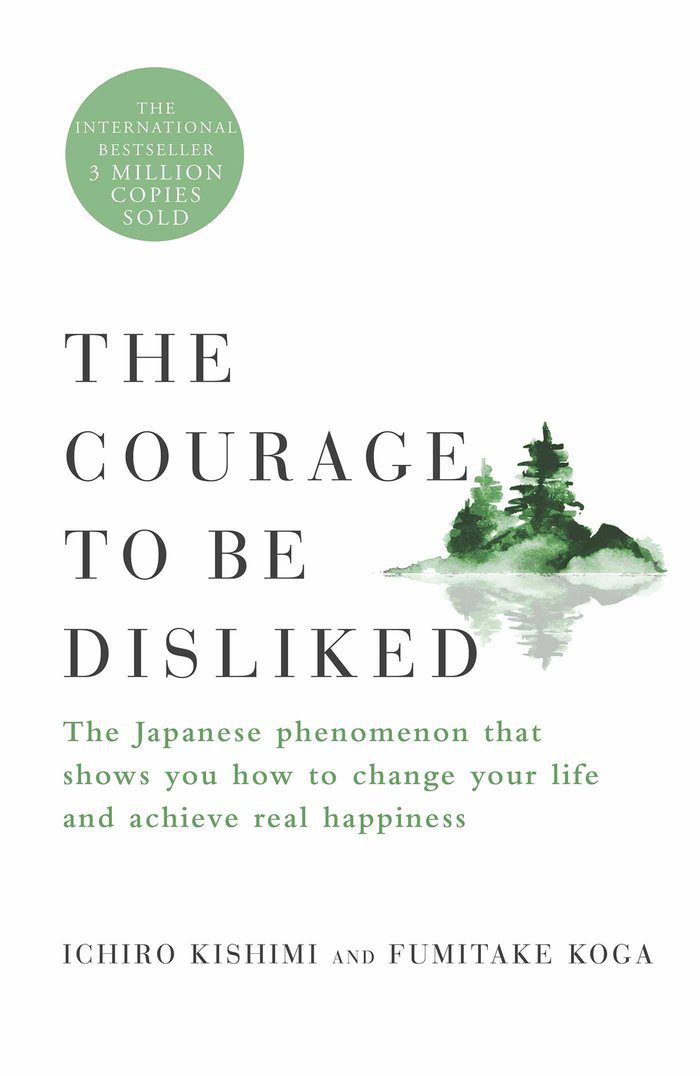
The Courage to be Disliked 3 is a book inspired by Socratic dialogue, a literary genre derived from Plato’s dialogues in which Socrates is the main character who, through conversation, seeks to answer questions on the meaning of life. The Courage to Be Disliked follows a conversation between a young man and a philosopher as they discuss the tenets of Alfred Adler’s theories. Their dialogue spans five nights, and the reader is invited to journey alongside the youth as he grapples with, fights against, and is ultimately moved by the profundity of Alder’s wisdom.
Freedom is being disliked by other people.- It is proof that you are exercising your freedom and living in freedom, and a sign that you are living in accordance with your own principles.
You are worried about how other people are looking at you. You are worried about being judged by other people. That is why you are constantly craving recognition from others. Now, why are you worried about other people looking at you, anyway? Adlerian psychology has an easy answer. You haven’t done the separation of tasks yet. You assume that even things that should be other people’s tasks are your own.
“Courage is . . . The universal virtue of all those who choose to do the right thing over the expedient thing. It is the common currency of all those who do what they are supposed to do in a time of conflict, crisis, and confusion.” – Florence Nightingale
At the root of our inability to stand for our convictions is our fear of public opinion and what people would say about us. As the saying goes “When you’re 18, you worry about what everybody is thinking about you. When you’re 40, you don’t give a darn what anybody thinks of you. When you’re 60, you realize that nobody has been thinking about you at all!”. Most of us are going to live the entirety of our lives living scared because of the fear of other people’s opinions. American industrialist and Ford Motor Company, Henry Ford pioneered the assembly line technique of mass production and the five-day workweek.
“When you’re 18, you worry about what everybody is thinking about you. When you’re 40, you don’t give a darn what anybody thinks of you. When you’re 60, you realize that nobody has been thinking about you at all!”.
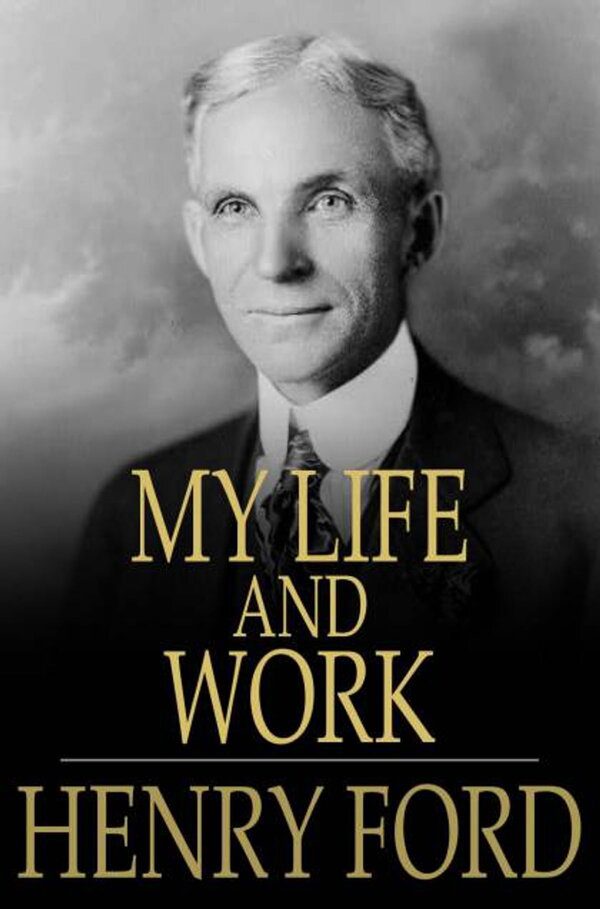
In his autobiography, My Life And Work 4, Henry Ford writes about how the fear of public opinion makes most of us stop short of achieving our dreams and aspirations. He observed:
There is also the great fear of being thought a fool. So many men are afraid of being considered fools. I grant that public opinion is a powerful police influence for those who need it. Perhaps it is true that the majority of men need the restraint of public opinion. Public opinion may keep a man better than he would otherwise be—if not better morally, at least better as far as his social desirability is concerned. But it is not a bad thing to be a fool for righteousness’ sake. The best of it is that such fools usually live long enough to prove that they were not fools—or the work they have begun lives long enough to prove they were not foolish.
Public opinion may keep a man better than he would otherwise be—if not better morally, at least better as far as his social desirability is concerned. But it is not a bad thing to be a fool for righteousness’ sake.
Social scientist Brené Brown studies courage, vulnerability, shame, and empathy. She is a research professor at the University of Houston, Author of six #1 New York Times bestsellers, and the host of the podcasts Unlocking Us and Dare to Lead. In her book, Braving the Wilderness: The Quest for True Belonging and the Courage to Stand Alone 5, she writes about the courage to stand alone in the wilderness—an untamed, unpredictable place of solitude and searching.
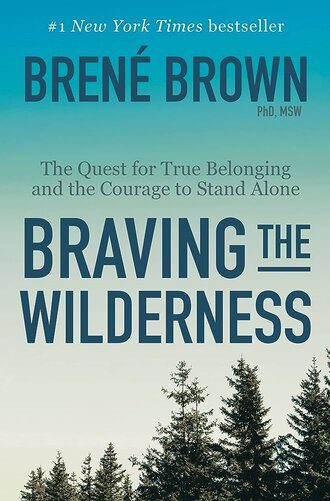
Belonging so fully to yourself that you’re willing to stand alone is a wilderness—an untamed, unpredictable place of solitude and searching. It is a place as dangerous as it is breathtaking, a place as sought after as it is feared. The wilderness can often feel unholy because we can’t control it, or what people think about our choice of whether to venture into that vastness or not. But it turns out to be the place of true belonging, and it’s the bravest and most sacred place you will ever stand.
The special courage it takes to experience true belonging is not just about braving the wilderness, it’s about becoming the wilderness. It’s about breaking down the walls, abandoning our ideological bunkers, and living from our wild heart rather than our weary hurt.
True belonging is not passive. It’s not the belonging that comes with just joining a group. It’s not fitting in or pretending or selling out because it’s safer. It’s a practice that requires us to be vulnerable, get uncomfortable, and learn how to be present with people without sacrificing who we are. We want true belonging, but it takes tremendous courage to knowingly walk into hard moments.
“Belonging to ourselves means being called to stand alone—to brave the wilderness of uncertainty, vulnerability, and criticism. ”
Meditations
- Daily Calm with Tamara Levitt – Wonder
- When we were children, we perceived the world with wonderment, we were amazed by the experiences of our senses, fascinated by big ideas and unanswered questions. But as we grow older; we can lose touch with that sense of wonder, We settle into routines and responsibilities, we follow plans and schedules, and we busy our minds with thoughts of last night’s movie or tomorrow’s appointment at the bank.
- We disengage the world around us, so we no longer marvel at the speed of light or the smell of cinnamon. Part of the problem is our culture of pain avoidance, we avoid pain and discomfort in all its forms – physical, mental, emotional. But by norming ourselves to pain, we can also norm ourselves to the pleasures of life. The exhilaration of everyday existence.
- Mindfulness can help us reconnect with that child-like sense of wonder. It teaches us that every moment is an opportunity to begin again, it teaches us to experience the world and all that is in it with a beginner’s mind. When we do that when we bring our awareness fully into the present moment and open our eyes as though for the first time, we can allow ourselves to be moved by the mystery of the beauty in every passing moment.
I do not know what I may appear to the world, but to myself I seem to have been only like a boy playing on the seashore, and diverting myself in now and then finding a smoother pebble or a prettier shell than ordinary, whilst the great ocean of truth lay all undiscovered before me. – Isaac Newton
- Daily Jay with Jay Shetty – Attitude over Outcome
- In life, when we allow our happiness to hinge on everything being the way we expected it’s a setup for disaster. External circumstances are fragile, we usually have little control over them but your internal state is where you can take charge. In your mind, there is almost always a way to create what you want to create. When you focus on the outcome, you leave a narrow space for success; anything that happens outside of what you envision throws you into a loop. But when you focus on the energy you bring to something, you expand the opportunities for a successful experience regardless of the outcome itself.
- When you concentrate on your response, you can make the most of whatever happens because when it comes down to it- it is your energy that shapes your experience.
Podcast
- When your headphones listen to you with Ramses Alcaide of Neurable | How I Built This with Guy Raz
All the Best in your quest to get Better. Don’t Settle: Live with Passion.


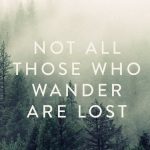
Comments are closed.